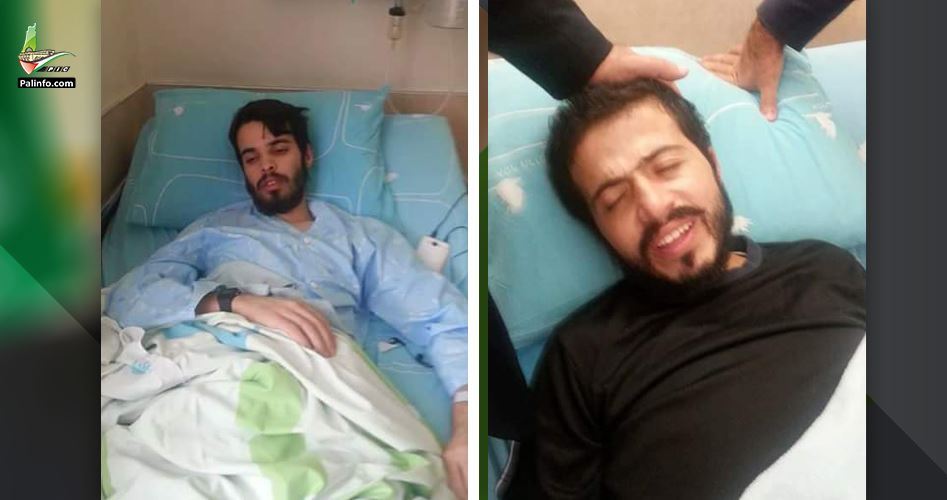 Anas Shadid and Ahmad Abu Fara are now on their 82nd day of hunger strike and in severely critical health condition on Thursday, 15 December. Their lawyer, Ahlam Haddad, said that the two stopped drinking water and are suffering from chest and heart pains and shortness of breath. The two are on hunger strike against their imprisonment without charge or trial under Israeli administrative detention.
Anas Shadid and Ahmad Abu Fara are now on their 82nd day of hunger strike and in severely critical health condition on Thursday, 15 December. Their lawyer, Ahlam Haddad, said that the two stopped drinking water and are suffering from chest and heart pains and shortness of breath. The two are on hunger strike against their imprisonment without charge or trial under Israeli administrative detention.
Both were seized from their homes in Dura and Surif villages outside al-Khalil and ordered to imprisonment without charge or trial. On 25 September, they came together to launch a hunger strike to demand their freedom. They stopped drinking water in protest after the Israeli Supreme Court refused to release them to a Palestinian hospital despite their dire health condition. The two are demanding their release from administrative detention. They are held in Assaf Harofeh hospital under “suspended” administrative detention orders that will be reimposed if their health improves.
Abdelmajeed Shadid, the brother of Anas Shadid, was the MC at the welcoming celebration for former hunger striker Bilal Kayed on Monday, 12 December in Asira al-Shamaliyeh. Kayed, fellow former hunger-striker Khader Adnan and others took part in the past days in a protest in support of Shadid and Abu Fara, demanding their immediate release. Abu Fara, 29, is married for just less than a year and previously spent two years in Israeli prisons. Shadid, 19, is a farmer who was raising chickens on his family’s land before being seized by occupation forces. Only 15 days before he was arrested, he opened a small poultry shop. As a small farmer, his mother said that 500 of his 5,000 chickens had died and the shop was closed after he was seized because of the absence of their owner.
Also on hunger strike is fellow administrative detainee Ammar Hmour, who launched his hunger strike 26 days ago in protest of his imprisonment without charge or trial. Dozens of fellow citizens from his home village of Jaba south of Jenin took part in a solidarity protest on Wednesday, 14 December, demanding freedom for Hmour and his fellow hunger strikers.
Long-term prisoner Kifah Hattab is also on hunger strike for the 22nd day, demanding his recognition as a prisoner of war with all attendant rights under the Geneva Conventions.
Abu Fara, Shadid, and Hmour are three of over 700 Palestinians imprisoned without charge or trial under administrative detention. Administrative detention orders are issued for one to six month periods and are indefinitely renewable. These imprisonment orders come without charge or trial and are issued on the basis of so-called “secret evidence,” to which both the Palestinian detainee and their lawyers are denied access.
Discover more from Samidoun: Palestinian Prisoner Solidarity Network
Subscribe to get the latest posts sent to your email.




